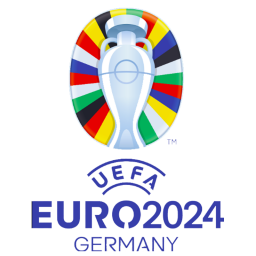
UEFA Euro
European football competitions
Information
The UEFA European Football Championship
The UEFA European Football Championship, commonly known as the Euro, is the premier competition for national teams in Europe. Every four years, this tournament captures the hearts of millions, showcasing the best football talents across the continent. From its storied history to the thrilling matches that define it, the Euro is a celebration of European football at its finest.
History of the Euro
The Inception
The Euro was conceived by Henri Delaunay, the first General Secretary of UEFA, in the 1920s, but it wasn't until 1960 that the first tournament was held. France hosted the inaugural championship, which saw the Soviet Union emerge as the winners.
Early Years
Initially, the tournament featured only four teams, but it expanded over the years to accommodate more teams as its popularity grew. By 1980, the tournament included eight teams, and by 1996, it had expanded to 16 teams.
Modern Era
The Euro's format continued to evolve, and in 2016, it expanded to 24 teams, allowing more countries to participate in the footballing extravaganza. This change brought more excitement and competition to the tournament.
Format and Structure
Qualification
National teams must go through a rigorous qualification process to earn a spot in the Euro. This involves competing in a series of matches within their respective groups, with the top teams securing their place in the tournament.
Group Stage
The main tournament kicks off with the group stage, where the 24 qualified teams are divided into six groups of four. Each team plays three matches, and the top two teams from each group, along with the four best third-placed teams, advance to the knockout stage.
Knockout Stage
The knockout stage consists of the Round of 16, quarter-finals, semi-finals, and the grand final. Matches in the knockout stage are intense and often decided by the narrowest of margins, with extra time and penalties adding to the drama.
Iconic Moments in Euro History
Denmark's Fairytale in 1992
One of the most memorable moments in Euro history occurred in 1992 when Denmark, initially not qualified, replaced Yugoslavia and went on to win the tournament. Their triumph remains one of the greatest underdog stories in football.
Greece's Shock Victory in 2004
In 2004, Greece stunned the football world by winning the Euro, defeating the host nation Portugal in the final. Their defensive style and team spirit were instrumental in their unlikely success.
Top Teams and Players
Most Successful Teams
- Germany: With three titles (1972, 1980, 1996), Germany is one of the most successful teams in Euro history.
- Spain: Spain also has three titles (1964, 2008, 2012), known for their dominant tiki-taka style.
- France: Winners in 1984 and 2000, France has a rich history in the tournament.
Legendary Players
Several players have left an indelible mark on the Euro. Michel Platini's nine goals in 1984, Marco van Basten's stunning volley in 1988, and Cristiano Ronaldo's consistent performances across multiple tournaments are just a few examples of individual brilliance.
Impact of the Euro
On European Football
The Euro has significantly impacted European football, providing a platform for showcasing emerging talents and fostering rivalries. It has also helped in the development of footballing infrastructure across the host countries.
On Fans and Culture
The tournament brings together fans from diverse backgrounds, creating a unique cultural melting pot. The Euro fosters a sense of unity and celebration, with fan zones, public viewings, and festivals adding to the festive atmosphere.
Future of the Euro
Upcoming Tournaments
The future of the Euro looks bright, with upcoming tournaments expected to feature even more thrilling matches and unforgettable moments. The 2024 edition, to be held in Germany, promises to be another spectacular event.
Innovations and Changes
UEFA continues to innovate, with potential changes to the tournament format and the introduction of new technologies like VAR to enhance the fairness and excitement of the games.
Conclusion
The UEFA European Football Championship is more than just a tournament; it is a celebration of football, culture, and unity. From its humble beginnings to its current status as one of the most prestigious competitions in the world, the Euro continues to captivate and inspire. As we look forward to future editions, the legacy of the Euro will undoubtedly continue to grow, bringing joy and excitement to football fans everywhere.
FAQs
What is the UEFA European Football Championship?
The UEFA European Football Championship, or the Euro, is a prestigious national team competition held every four years, featuring the best football teams from Europe.
How many teams participate in the Euro?
Since 2016, 24 teams participate in the Euro, competing in group stages and knockout rounds to win the championship.
Which team has won the most Euro titles?
Germany and Spain are tied for the most Euro titles, each having won the tournament three times.
